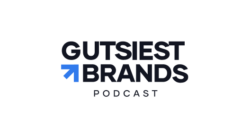We’ve gathered key takeaways from the on-demand event, “Futureproof your business with an ‘always on’ agile insights strategy,” focused on accelerating change by applying innovative insights strategies to business. Take a closer look at the 2021 consumer as well as key trends and areas of opportunity, or access the full event here. You can find Part I of the series here, and Part II here.
As consumer sentiments and behaviors continue to change, so must businesses in order to keep up. Consider this: Right now, there’s steady growth in overall optimism, with four in 10 people saying they’re optimistic about the future and 22% saying they feel confident spending money. While financial worries persist with 30% of people concerned about their financial security, this has dropped from 45% in March 2020.
Trends are slowly moving in a positive direction, but brands must keep close to the consumer and stay on top of changes as they happen by adopting digital, agile solutions that focus on real-time data collection.
To learn more about what that actually means across top global companies, we gathered top insights leaders to talk about staying relevant and agile in today’s market, including:
- Joel Renkema, Global Insights & Analytics Director, Hygiene at Reckitt
- David Eduardo Seguí Vásquez, Analytics & Insights Leader at P&G
- Judith Roucairol, Consumer Centricity Acceleration Director at L’Oréal France
- Sarah Billson, Sensory and Consumer Scientist at Mars Wrigley
- Alejandro Cordero Ortiz, Marketing Manager at Papa John’s International
Here’s what they had to share.
Consumers support companies with a conscience.
As buyer confidence grows, brand values remain a strong motivating factor for consumers worldwide. An overwhelming 85% say brands are accountable to consumers, and 8 in 10 go out of their way to engage with brands that align with their personal values, including support for communities and customers and sustainable efforts top that list.
Brands are taking notice. These trends are a big part of why Papa John’s is going greener in operations and marketing messaging.
“We’re very aware that people are looking for sustainability and see a lot of people looking for a healthier lifestyle. We’re looking into vegan pizzas, changes to our boxes to make them more compostable, and supporting sustainability projects to reduce our carbon footprint,” Alejandro shares. “We are moving to communicate that in a very engaging way and win the trust of consumers.”
P&G has also taken action according to insights, and brands with meaning are a top agenda item for the global company.
“We target the type of activity according to the brand,” David says. “For example, Pampers — we developed the first-ever diaper for premature babies and are donating them to hospitals…because we think it’s the right thing to do, and we want to improve loyalty and trust from future parents.”
Modern research methods yield fast, meaningful consumer insights.
A major business implication of the past 15+ months was needing to shift consumer research strategies, foregoing traditional methods. Yet many have found this allows for a stronger connection with people.
“We test, learn and innovate fast because of the dramatic pace of change,” David shares, noting that P&G’s insights team has recently tripled in size with senior management also becoming more involved.
Alejandro agrees and says the pressure is on to have meaningful insights to help franchise owners stay ahead. “It’s very important to have hard data to execute global plans,” he says. “Franchises are looking to us more than ever for guidance and requesting more hard data to make decisions. We need more information to guide them.”
At Mars Wrigley, Sarah shares, “We had to switch some of our research methods to in-home, and people are so much more comfortable in their own space. We can access people so much quicker with a much quicker turnaround time. Business sees the benefit, but we also see the real insights coming from real people in real moments.”
Papa John’s has noticed a positive impact as well, with Alejandro saying, “We digitized all consumer research compared to focus groups previously. It has made research more agile…and so many of the habits we’ve had to adapt to are here to stay.”
Today, business is about more than selling products.
There’s a heavy emphasis on getting to know the consumer as a person. At the same time, companies have been forced back to basics, considering what they stand for to better connect with those they serve.
At Loreal, Judith says that the transformation toward consumer-centricity began several years ago, with consumer insights shared across the employee base for an ongoing, shared understanding of consumer needs and strategic decisions.
At Mars Wrigley, understanding the human side of consumer insights is key as well, even down to more nuanced intel at the attribute level. “What is it that consumers are looking for? We find out what job they’re looking for their snack to do.”
Reckitt has also seen a business shift from thinking about consumers to forming a deeper understanding of them as people in their real environments.
“We play fundamental roles in people’s lives with brands like Lysol, and how we relate to people and really stay true to why we exist is critical,” Joel shares. “It’s about building trust. Through a pandemic, people are nervous, anxious, and uncertain, and brands play a big role in giving people the certainty and reassurance they need.”
He continues, “It’s about evolving — not changing — but evolving who you are and what you do to be what people need.”



 Back to Blog
Back to Blog

